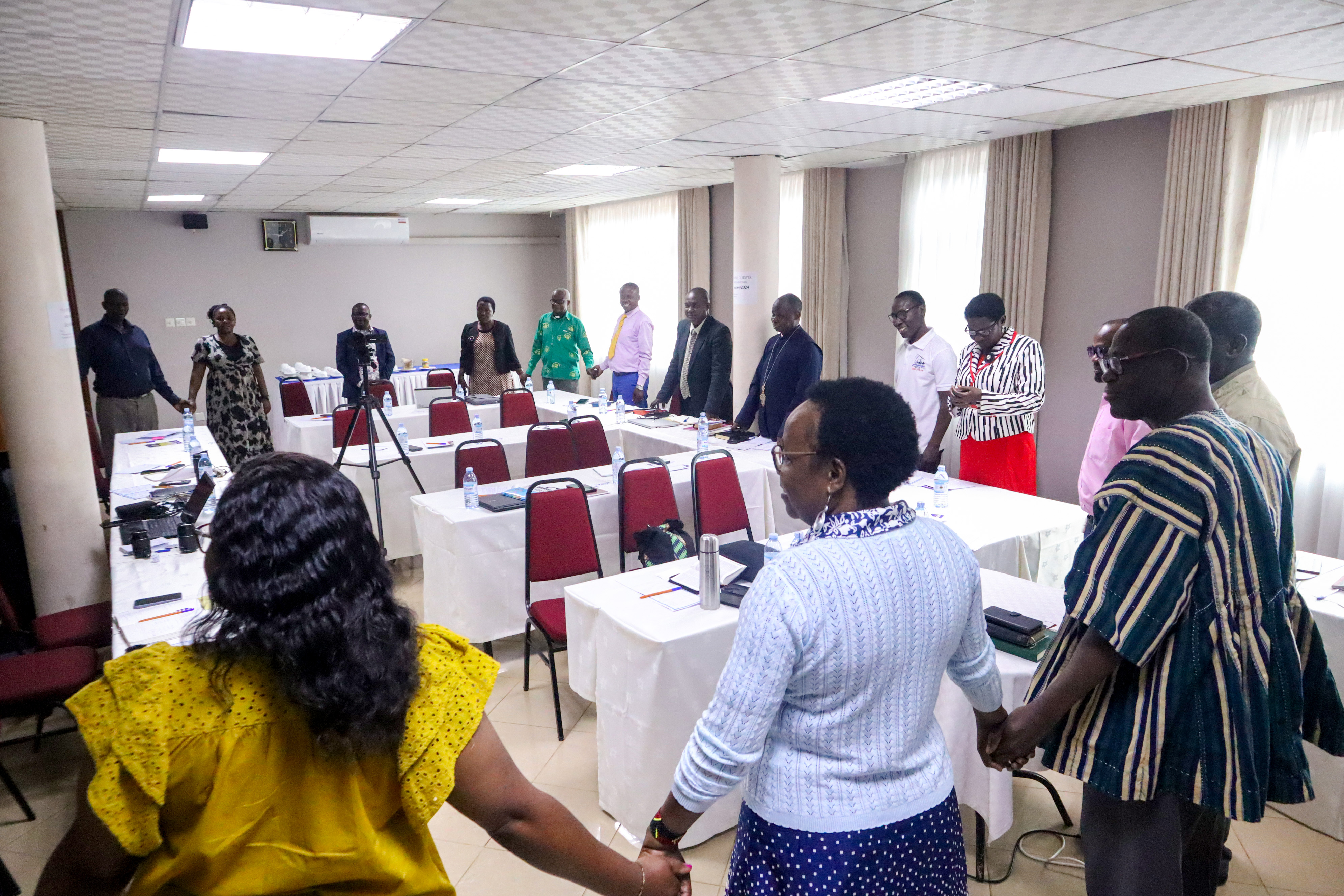
PROCMURA Organizes a Church Leaders’ Workshop in Kampala, Uganda
- By PROCMURA
- Events
- Hits: 1175
Uganda is a religiously diverse country, with Christianity and Islam being the dominant faiths. The country has a long-standing tradition of religious coexistence, but as religious landscapes evolve, the need for informed engagement across different faith groups becomes more pressing and necessary. The Programme for Christian-Muslim Relations in Africa (PROCMURA), in partnership with the Uganda Joint Christian Council (UJCC), recently organised a three-day workshop for church leaders in Uganda’s capital, Kampala, to continue empowering the church to effectively carry out its mission in this continually growing religious pluralistic environment.
The workshop, held under the theme “Mission in a Religiously Pluralistic Environment: Challenges and Opportunities,” brought together representatives from Uganda’s three main Christian denominations – the Orthodox Church, the Catholic Church and the Anglican Church of Uganda, which form the Uganda Joint Christian Council.
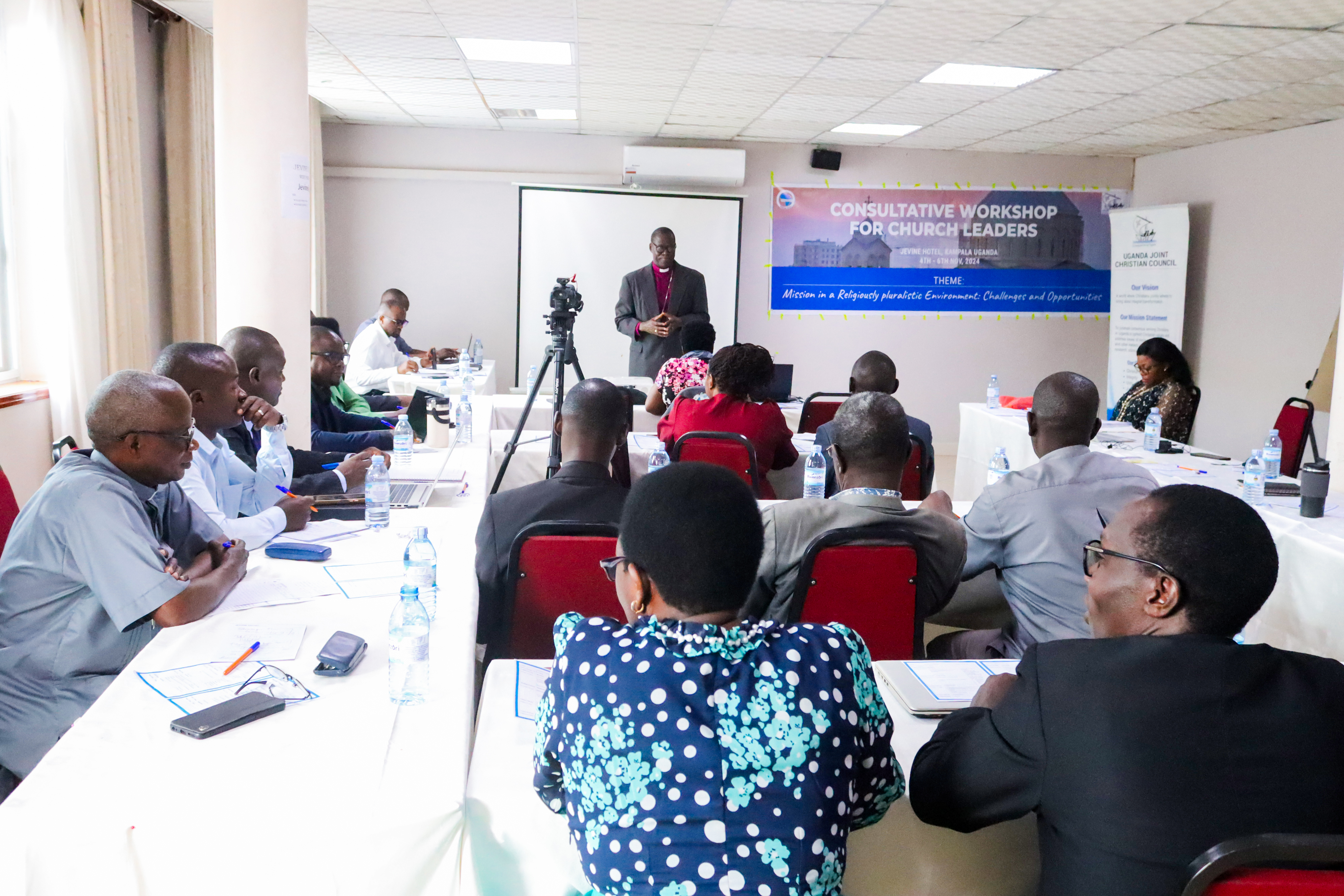
The General Adviser of PROCMURA Bishop Dr. Nathan Samwini facilitating one of the sessions.
The theme of this workshop addressed the heart of this reality: how do Christians engage in mission within such a pluralistic society, respecting differences while remaining committed to their faith and truthful to their great commission? The theme also served as a foundation for sensitising the Church in Uganda to the formation of PROCMURA’s Area Committee in Uganda.
The conference, which took place at the Jevine Hotel in Kampala from November 4 to November 6, 2024, primarily aimed to equip the clergy with knowledge and practical skills to navigate religious diversity while effectively and efficiently maintaining their Christian mission and identity—something that, in the long run, will promote understanding and cooperation between the church and other faith communities.
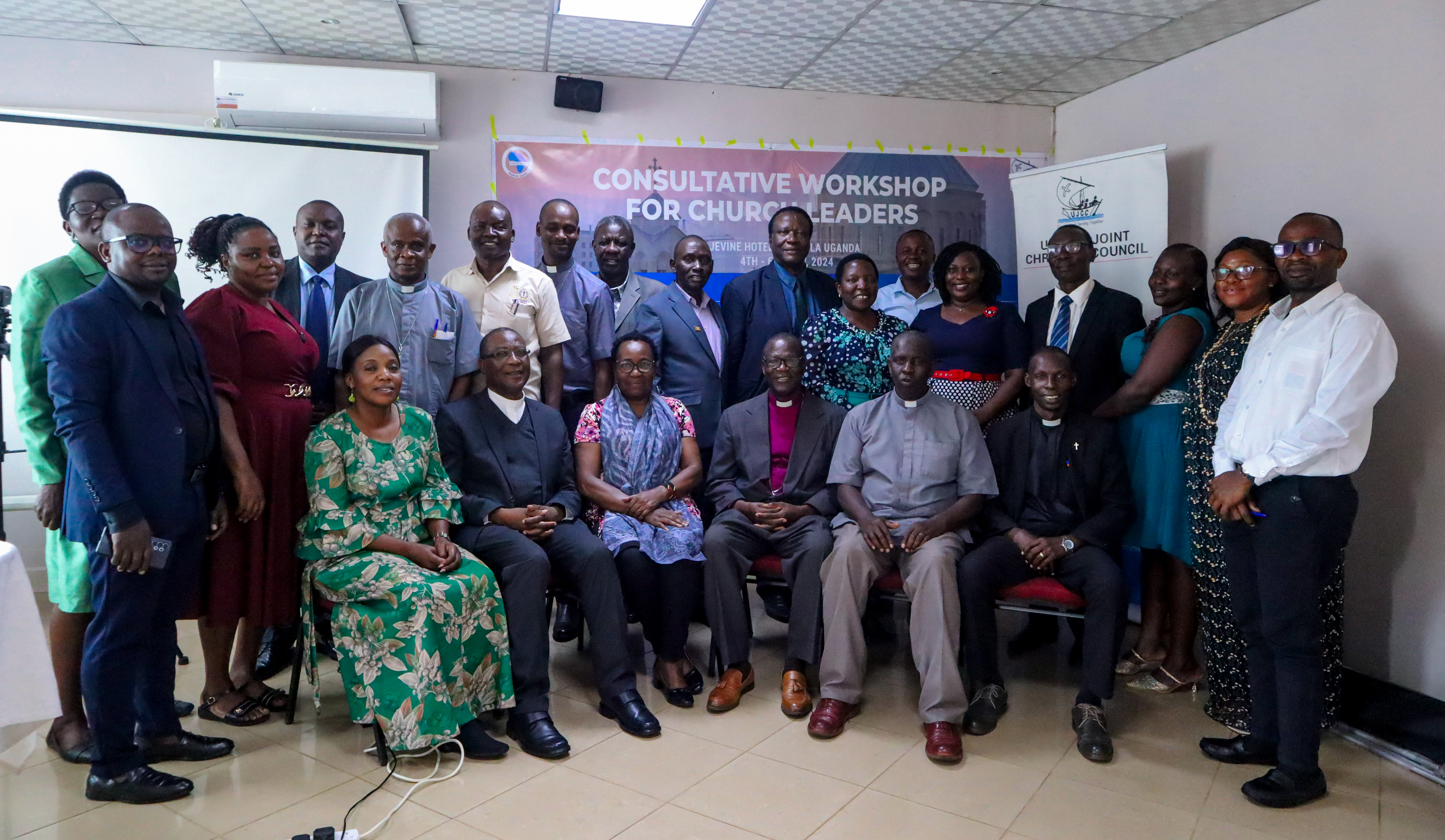
A section of participants and the PROCMURA team in a group photo.
Throughout the three days, the consultative workshop was divided into thematic sessions that tackled various aspects of the Christian mission in multi-religious contexts, including witnessing in a religious pluralistic environment and climate justice.
In a session facilitated by the General Adviser of PROCMURA, Bishop Dr. Nathan Iddrisu Samwini, titled “Challenges to Effective Christian Witness in a Religious Pluralistic Environment”, the workshop acknowledged both the opportunities and challenges that religious pluralism presents, particularly in Africa. Like many African nations, Uganda is seeing increased interaction between Christians and Muslims, necessitating a deeper understanding of each other’s faith and beliefs to promote peaceful coexistence, especially between these leading religious communities, especially the Muslim community.
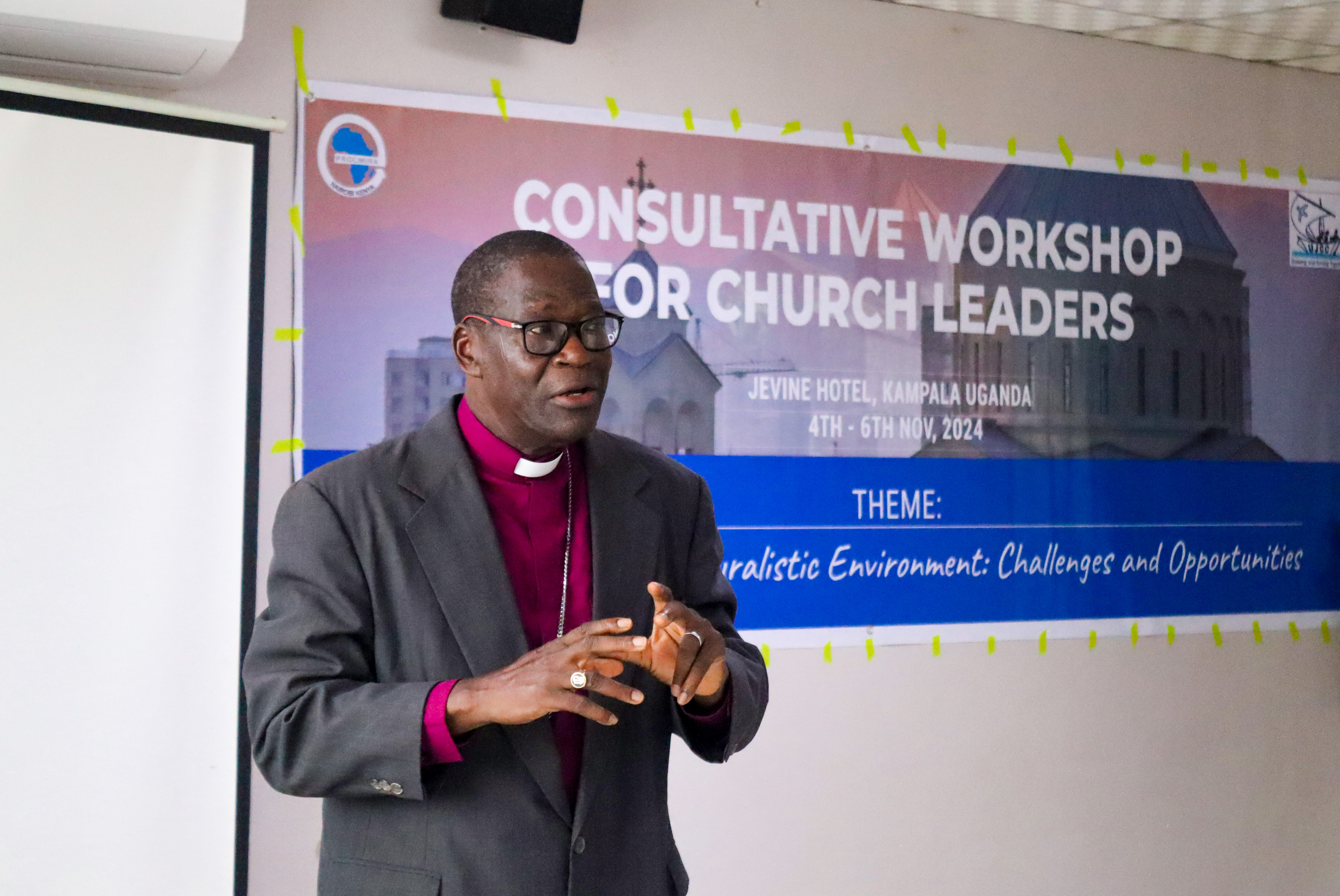
The General Adviser of PROCMURA Bishop Dr. Nathan Samwini engaging the church leaders.
Discussions focused on the challenges that arise when engaging in mission work within a pluralistic society. These include the risk of syncretism, balancing evangelism with respect for other faiths, and dealing with extremist ideologies. Participants discussed ways to overcome these challenges through education, good neighbourliness, and partnerships – approaches that PROCMURA has tested and proven to be effective.
While giving the rationale of the consultative workshop, the Team Leader of PROCMURA, Ms. Joy Wandabwa, emphasised that the three-day gathering was structured to provide church leaders with the knowledge and practical skills to engage respectfully and knowledgeably with Muslims and members of other faiths and, at the same time, encourage the church leaders to approach their mission work sensitively, recognising that a pluralistic environment calls for strategies that build and promote peaceful coexistence rather than exacerbate tensions among religious communities.
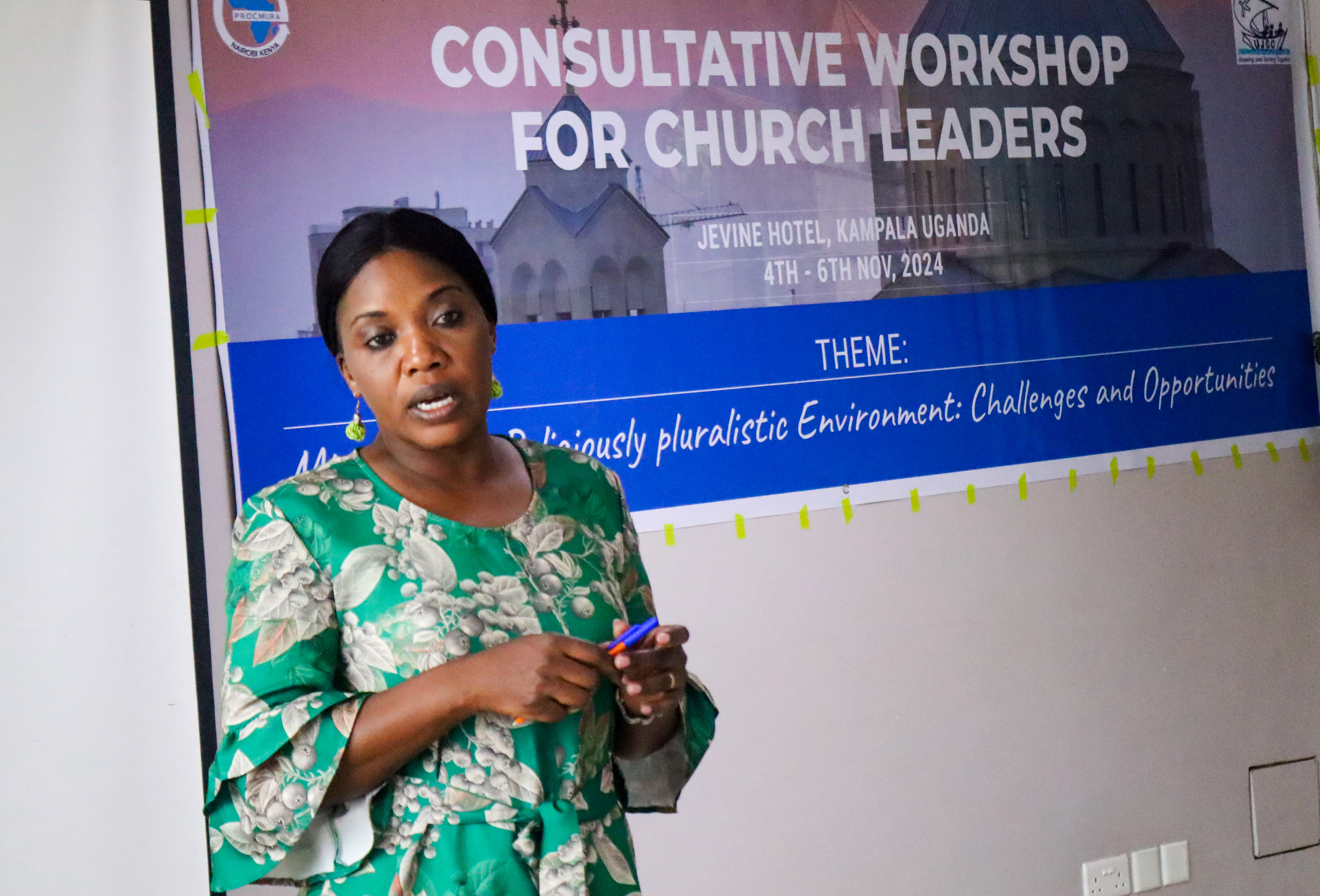
The Team Leader of PROCMURA Ms. Joy Wandabwa making her remarks.
The workshop, which included interactive sessions where participants shared their experiences from the field, provided a platform for church leaders to discuss their successes and struggles when engaging with members of other faiths. These discussions allowed for peer learning as leaders from different regions and denominations shared context-specific challenges and solutions on and around the workshop theme as well as in “The Church and Climate Justice” — an area that had a day dedicated to it.
While commending PROCMURA for the great work it is doing across the continent, the Secretary General of the Uganda Joint Christian Council, The Rev. Fr. Dr. Daniel Musiitwa, acknowledged that the workshop helped participants to think critically about how to respond to potential conflicts, misconceptions, or invitations to collaboration from people of other faiths, particularly our Muslim brothers and sisters, and also provided a platform to learn how religious leaders can contribute to mitigating the effects of climate change which is affecting all and sundry irrespective of religious affiliations.
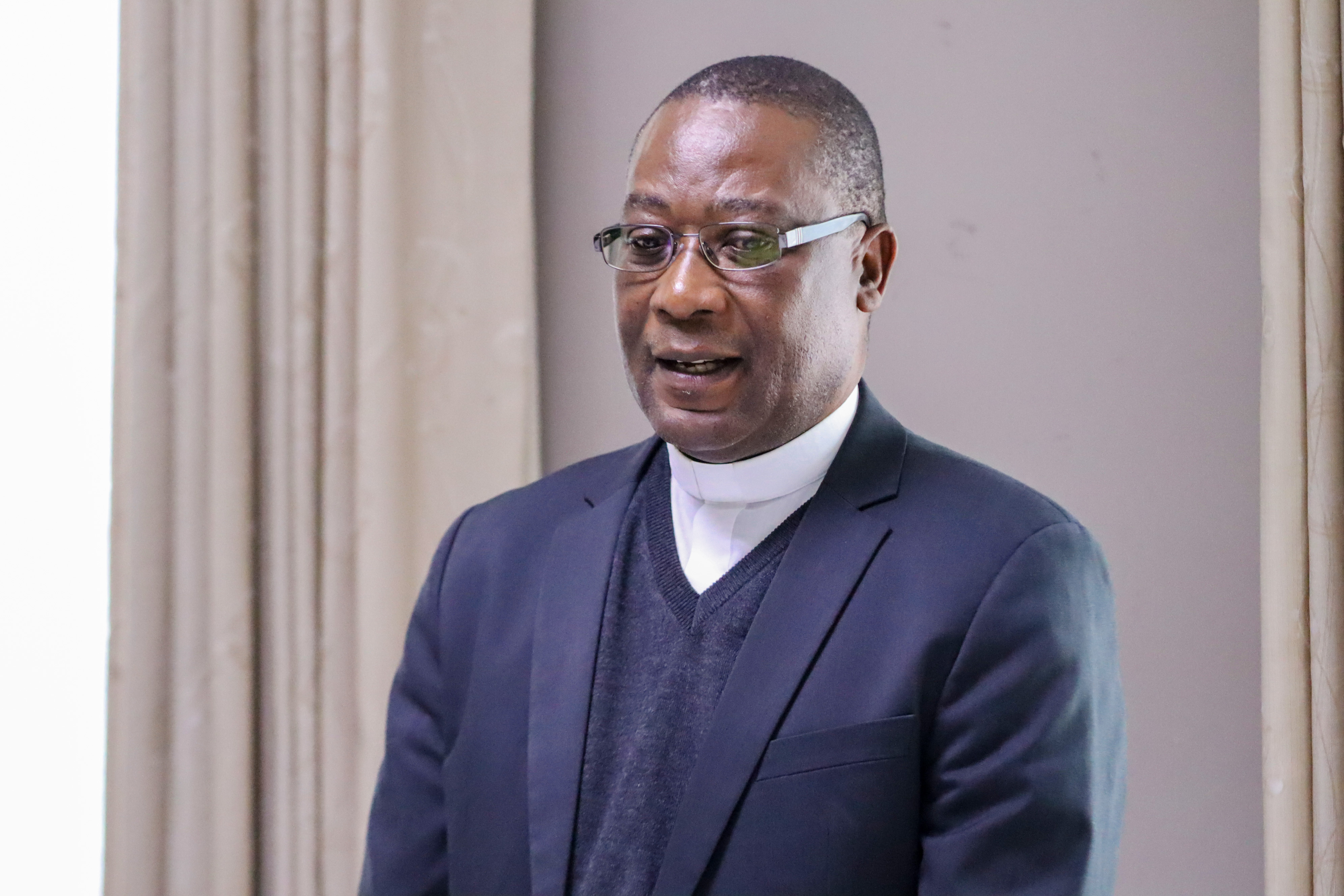
Secretary General of the Uganda Joint Christian Council, The Rev. Fr. Dr. Daniel Musiitwa, addressing the participants.
The Canon to Diocesan Secretary and Director of Communications at the Central Buganda Diocese of the Church of Uganda, Rev. Canon David Kaleebu, who led in one of the morning devotions, emphasised that religious pluralism should not be viewed as a threat but as an opportunity for Christians to live out their mission in respectful, empathetic, and reflective ways of Christ’s teachings. He highlighted the importance of maintaining one’s Christian identity while engaging with people of other faiths in ways that foster peace and collaboration.
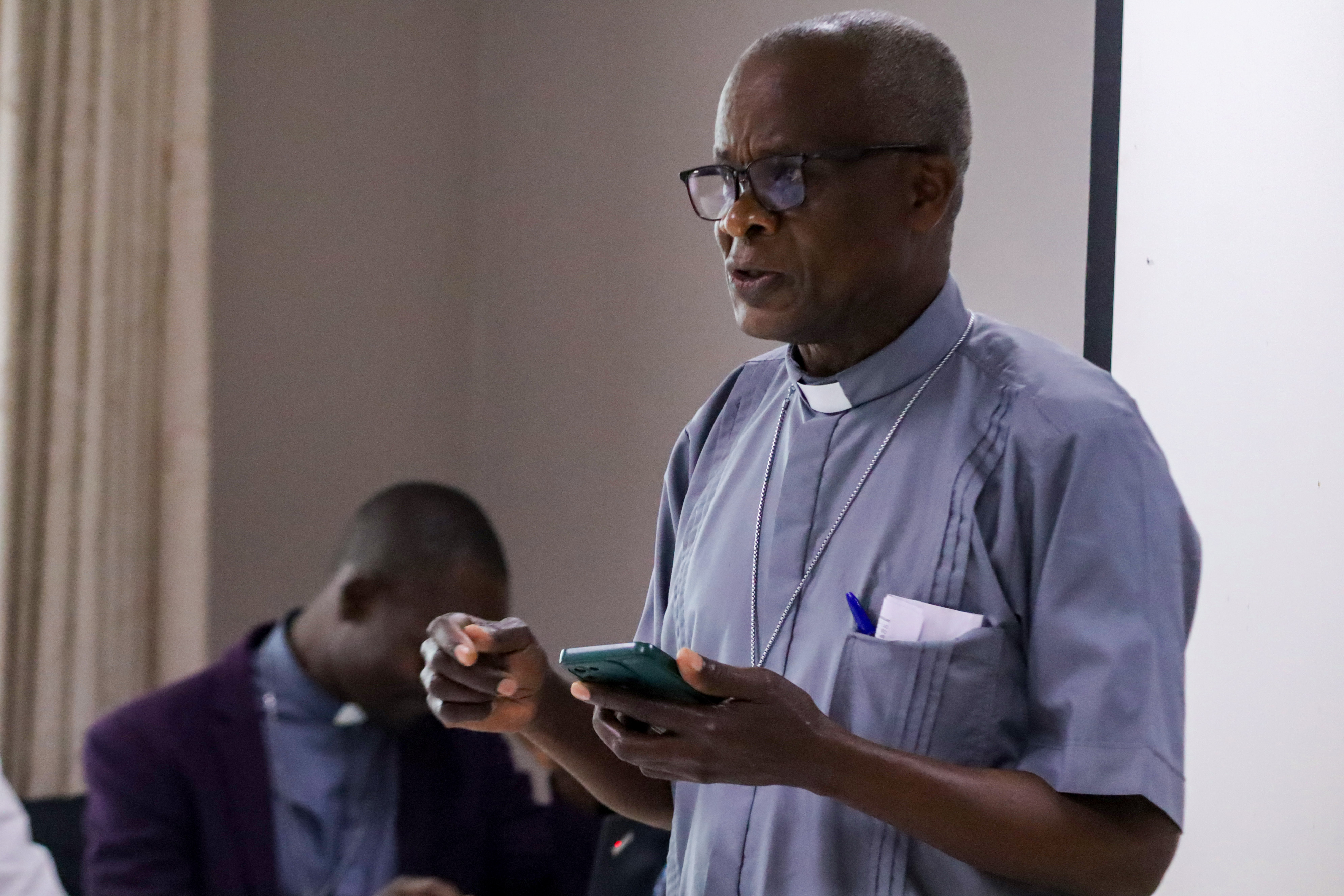
The Canon to Diocesan Secretary and Director of Communications at the Central Buganda Diocese of the Church of Uganda, Rev. Canon David Kaleebu, giving a sermon in one of the morning devotions.
In her presentation, “The Church and Climate Justice,” the Programme Officer of PROCMURA, Rev. Dr. Salli Efungani, reminded the church leaders that interreligious cooperation is a substantive strategy for reclaiming our environment, which has been destroyed owing to many man-driven actions. She also reiterated that God made man in his image and likeness to take dominion over everything and care for them, the environment included, and not to destroy it.
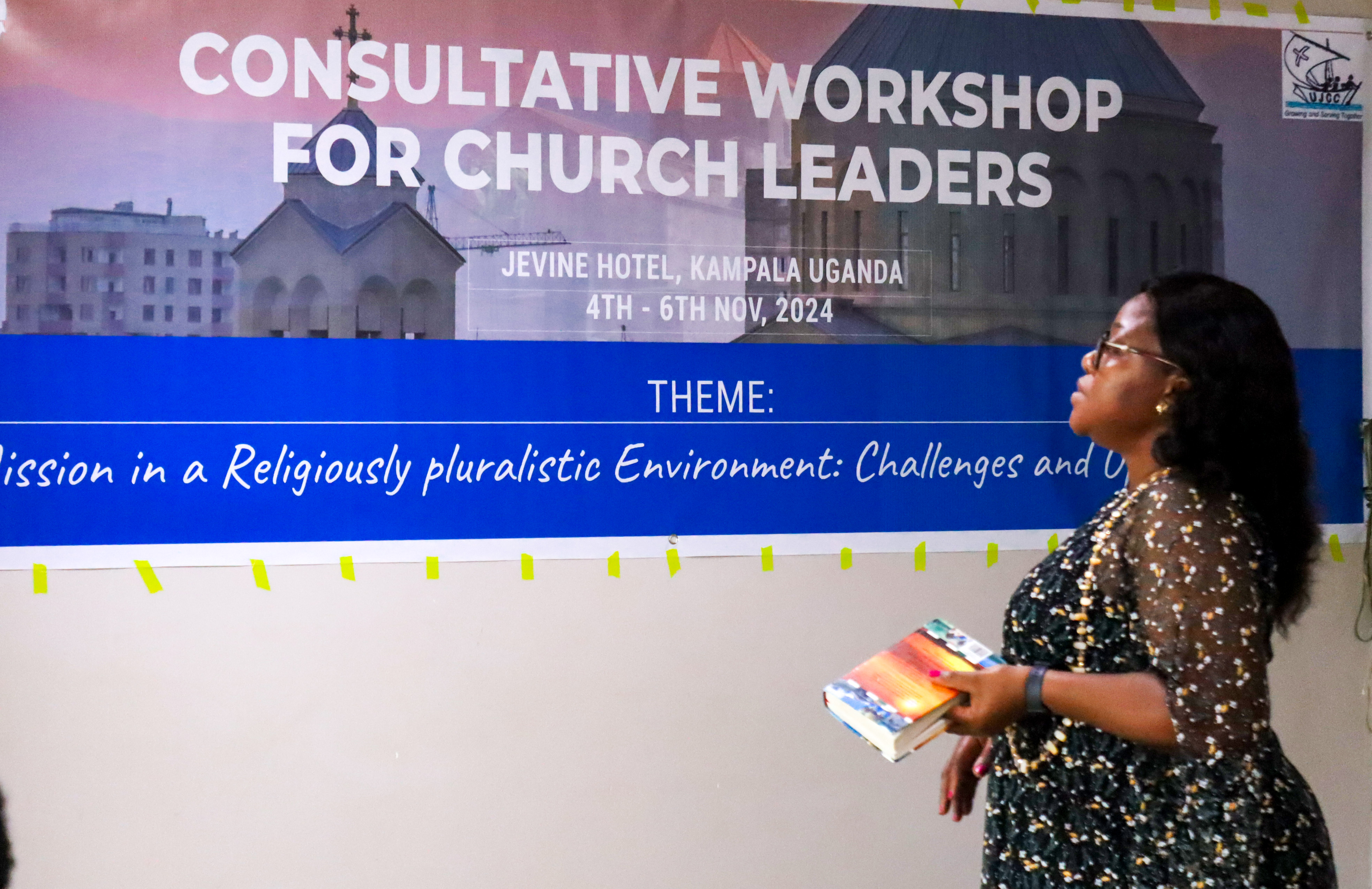
The Programme Officer of PROCMURA Rev. Dr. Salli Effungani making her presentation.
At the end of the workshop, the church leaders agreed on several actionable steps, including a commitment to establishing an Area Committee of PROCMURA in Uganda. The General Adviser of PROCMURA, Bishop Dr. Samwini, pledged the Central Office’s readiness to assist the Committee in becoming operational. They also committed to implementing the knowledge and skills they had gained. This includes the resolution that interfaith collaboration provides a platform for addressing social issues of common concern, such as climate justice, poverty, education, and health. Religious communities can contribute to nation-building and serve the common good by working together.
There was also a renewed commitment to fostering the spirit of peaceful coexistence even as the church carries out its mission, especially in areas where religious tensions exist. Leaders agreed to work closely with people of other faith backgrounds and stakeholders, including the government, to address issues that could potentially cause division.
The delegation later went on a field trip to the 125-year-old Nandere Catholic Parish, a member of the UJCC and the Bethany Land Institute (BLI), on a mission to learn and benchmark the church's Climate Change Adaptation and Mitigation best practices.

The PROCMURA delegation led by the General Adviser Bishop Dr. Samwini on a field visit to Bethany Land Institute (BLI).
Undoubtedly, by engaging in thought-provoking presentations and discussions, sharing experiences, and developing actionable plans, the workshop not only enhanced the capacity of the church leaders to respond to the growing religious pluralism but also reaffirmed their critical role in promoting peaceful coexistence and social cohesion in an increasingly diverse world and issues of common concern in their communities including the adverse effects of climate change.

